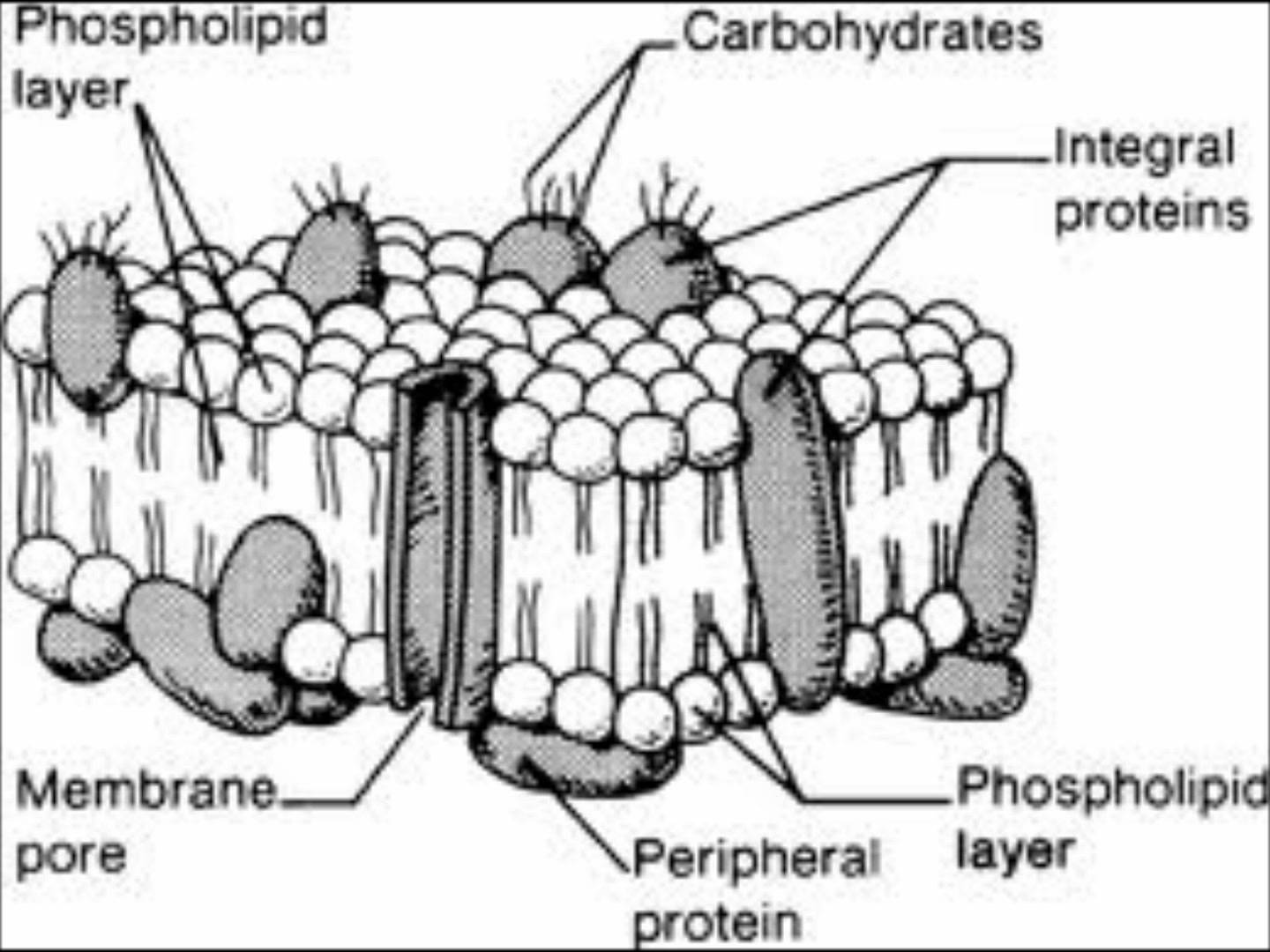
Cell Membrane Drawing Project at GetDrawings Free download
The plasma membrane of a cell is a network of lipids and proteins that forms the boundary between a cell's contents and the outside of the cell. It is also simply called the cell membrane. The main function of the plasma membrane is to protect the cell from its surrounding environment.
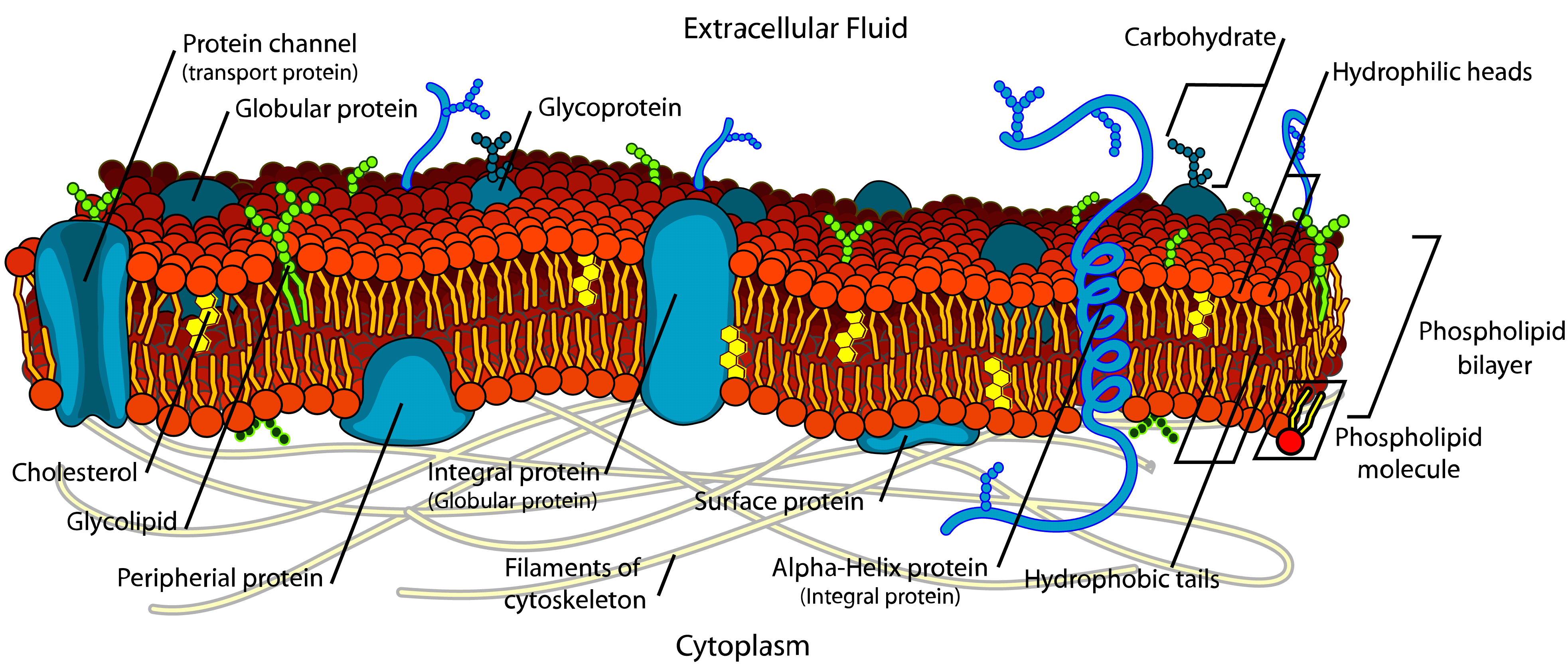
Function of the Plasma Membrane Biology Review (Video)
Figure 3.4.1 3.4. 1: Animal cell model. The plasma membrane is a structure that forms a barrier between the cytoplasm inside the cell and the environment outside the cell. Without the plasma membrane, there would be no cell. The membrane also protects and supports the cell and controls everything that enters and leaves it.

Labeled Diagram Of Plasma Membrane Elegant Functions Of the Plasma
Key Points. The principal components of the plasma membrane are lipids ( phospholipids and cholesterol), proteins, and carbohydrates. The plasma membrane protects intracellular components from the extracellular environment. The plasma membrane mediates cellular processes by regulating the materials that enter and exit the cell.
Plasma Membrane Drawing Biology Diagram Show Structure Of Cell
Plasma membrane is composed of a lipid layer which is semipermeable. It is responsible to regulate the transportation of materials and the movement of substances in and out of the cell. Download Complete Chapter Notes of Cell: The Unit of Life Download Now
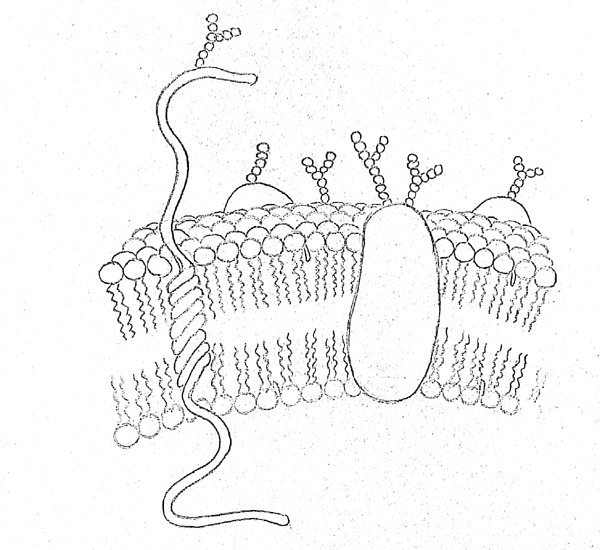
DRAW IT NEAT How to draw plasma membrane (Cell membrane)
What does the plasma membrane do? View a plasma membrane definition, plasma membrane function, and plasma membrane structure. Updated: 11/21/2023 Table of Contents Plasma Membrane:.

DRAW IT NEAT How to draw plasma membrane (Cell membrane)
Structure of the Plasma Membrane (Fluid-Mosaic) Components of the Plasma Membrane Phospholipids - Form a bilayer with phosphate heads facing outwards and fatty acid tails facing inwards Cholesterol - Found in animal cell membranes and functions to improve stability and reduce fluidity
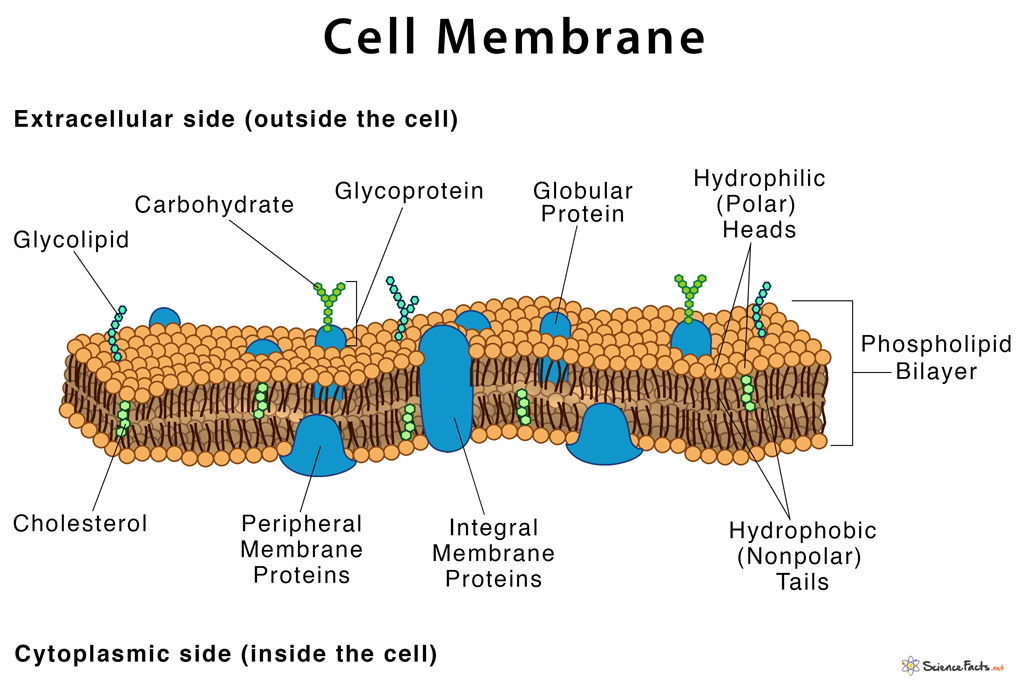
Fluid mosaic model of cell membrane virtfirst
The endomembrane system ( endo - = "within") is a group of membranes and organelles in eukaryotic cells that works together to modify, package, and transport lipids and proteins. It includes a variety of organelles, such as the nuclear envelope and lysosomes, which you may already know, and the endoplasmic reticulum and Golgi apparatus.
/cell-membrane-373364_final-5b5f300546e0fb008271ce52.png)
Cell Membrane Function and Structure
This membrane has about the consistency of.salad oil 1 . The first time I read that factoid, I didn't find it very reassuring! Salad oil seems like an awfully fragile boundary to place between a cell and the rest of the world. Luckily, the plasma membrane turns out to be very well-suited to its job, salad oil texture and all.
/plasma_membrane-58a617c53df78c345b5efb37.jpg)
Cell Membrane Function and Structure
Like all other cellular membranes, the plasma membrane consists of both lipids and proteins. The fundamental structure of the membrane is the phospholipid bilayer, which forms a stable barrier between two aqueous compartments. In the case of the plasma membrane, these compartments are the inside and the outside of the cell.
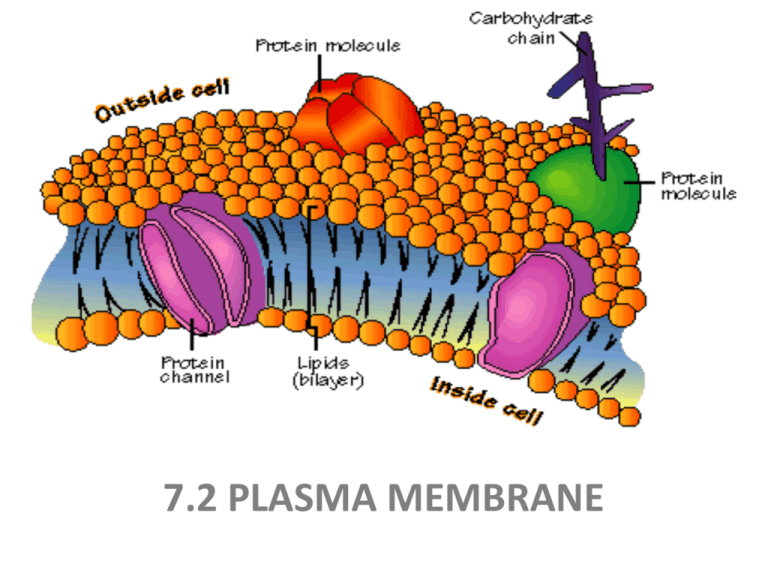
STRUCTURE of PLASMA MEMBRANE
The plasma membrane (also known as the cell membrane or cytoplasmic membrane) is a biological membrane that separates the interior of a cell from its outside environment. It is a fluid mosaic of lipids, proteins and carbohydrate. The plasma membrane is impermeable to ions and most water-soluble molecules. They cross the membrane only through.

Realistic human cell anatomy infographics with diagram showing plasma
On the Web: cell membrane, thin membrane that surrounds every living cell, delimiting the cell from the environment around it. Enclosed by this cell membrane (also known as the plasma membrane) are the cell's constituents, often large, water-soluble, highly charged molecules such as proteins, nucleic acids, carbohydrates, and substances.

Animal Cell Diagram Plasma Membrane Cells Biology 100a with Rahn at
The cell membrane is primarily made up of three things: 1. Phospholipids 2. Cholesterol 3. Proteins 1) Phospholipids There are two important parts of a phospholipid: the head and the two tails. The head is a phosphate molecule that is attracted to water ( hydrophilic ).
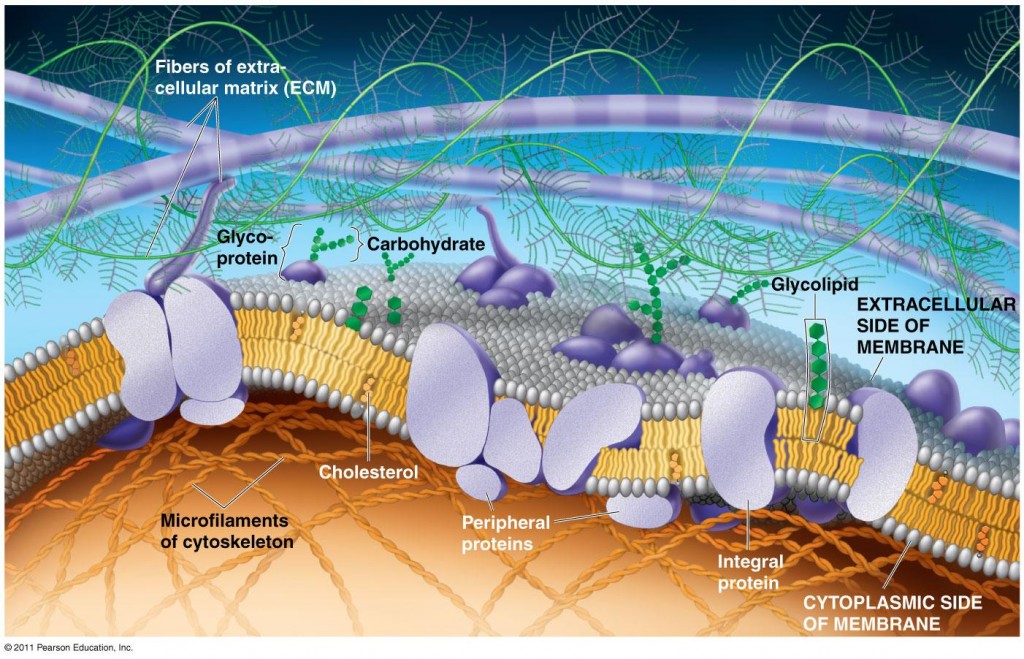
The Plasma Membrane Structure Anatomy & Physiology
Here we'll describe general features of membranes, using the plasma membrane as our example. A. The Phospholipid Bilayer. Gorter and Grendel predicted the bilayer membrane structure as early as 1925. They knew that red blood cells (erythrocytes) have no nucleus or other organelles, and thus have only a plasma membrane.
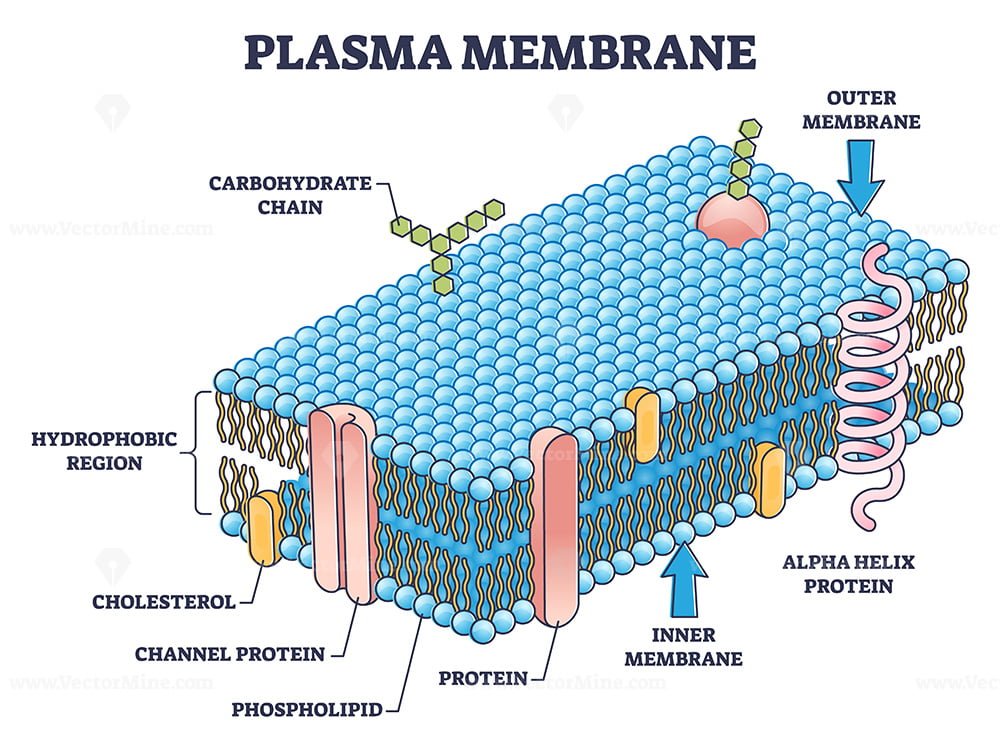
Cell membrane or cytoplasmic membrane microscopic structure outline
The plasma membrane is a flexible, lipid bilayer that surrounds and contains the cytoplasm of the cell. Based on their arrangement of molecules and the presence of certain specialized components, it is also described as the fluid mosaic model.
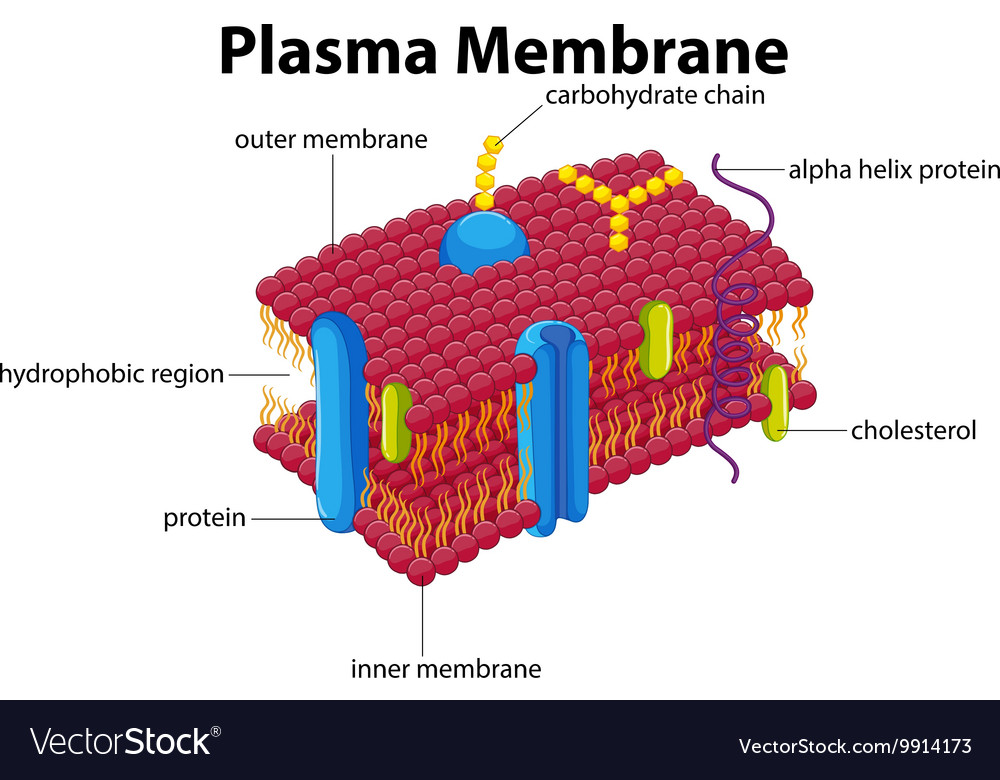
Diagram with plasma membrane Royalty Free Vector Image
Hi there, Welcome to my channel Biology Diagrams. Here I'll draw Diagrams of each and every topic in biology that will help you to draw diagrams and to revis.

a current representation of the plasma membrane showing the same basic
A Phospholipid Bilayer. The plasma membrane is composed mainly of phospholipids, which consist of fatty acids and alcohol. The phospholipids in the plasma membrane are arranged in two layers, called aphospholipid bilayer.As shown in Figure below, each phospholipid molecule has a head and two tails.The head "loves" water (hydrophilic) and the tails "hate" water (hydrophobic).